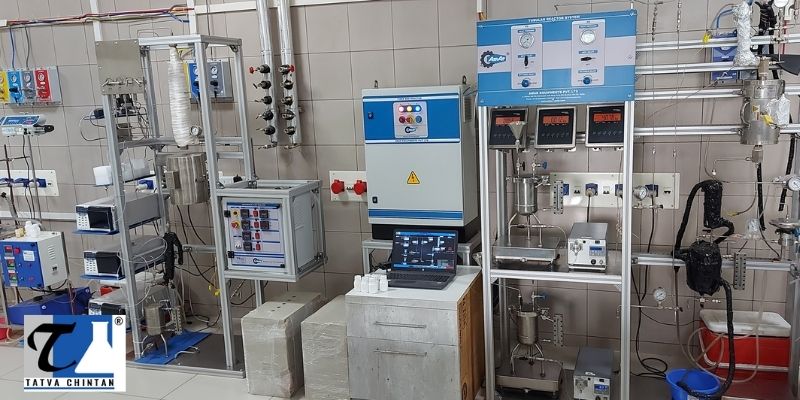Industrial Applications Of Phase Transfer Catalysts
Chemical industries are growing at a fast pace and the demand for chemicals has been increasing in different industries. Right from the manufacturing units to the pharmacy, every industrial sector requires different chemicals. When the demand for the chemicals increases, the chemical industries have to make sure that they are meeting the increasing demand. They have to increase the supply of the required chemicals. One of the most common industrial chemicals that always remain in demand is the phase transfer catalyst. There are many manufacturing units that require phase transfer catalysts in large quantities to support different chemical reactions. Why do you think phase transfer catalyst is so important for the industries, and what are the applications of the phase transfer catalyst? So let’s get started.
What Do You mean By Phase Transfer Catalyst?
A phase transfer catalyst is also known as the PTC, and its basic function is to perform as a catalyst for a wide range of chemical reactions. The phase transfer catalyst is incorporated in the chemical reactions because the chemical reaction needs to support the migration of different chemicals from one phase to another. You can make use of phase transfer catalysts for a wide range of heterogeneous chemical reactions. If you belong to the chemical industry, you might be knowing that the ionic reactants or chemical compounds find it difficult to double in the organic solution. They are easily soluble in the aqueous phase. Due to such a situation, you need to make use of the phase transfer catalyst to support the chemical reactions with such reactants. In simple words, we can understand that the catalyst are functioning like detergents. They are making the chemical solution favorable for the reactants and helping in accelerating the overall speed of the reaction.
Why Do You Think That Phase Transfer Catalyst Is Essential For Chemical Industry? What Are The Applications Of PTC In Industries?
There are multiple applications of phase transfer catalysts. We have discussed some of the major applications below.
#1 Phase transfer Catalyst Helps In Increasing The Productivity Of The Chemical Reactions
When we are talking about the increased productivity of the chemical reactions, you need to ensure that there is an increase in the overall yield of the finished products. How this is possible? With the help of PTC, the technicians can easily reduce the cycle time of the reactions and reach the end products at a faster speed. Moreover, the presence of PTC in the chemical reactions can decrease the number of unit reactions that support the main reactions to produce the final product. When the number of unit reactions is reduced, you can enhance the volume efficiency of various reactors and this, in turn, will increase the yield.
#2 With The Help Of PTC, You Can Enhance The Quality Of The Output
#3 PTC Is Used In The Chemical Industry For Increasing The Safety Of The Reactions
A chemical reaction can be endothermic or exothermic. The exothermic reactions release heat in high amounts, and therefore it can raise chances of accidents in the industries. With the help of PTC, you can easily control the heat exerted by the exothermic reaction and maintain high safety standards. Moreover, when you are making use of the phase transfer catalysts in the reactions, the requirement of dangerous chemicals reduces to a minimum.
#4 Phase Transfer Catalyst Are Applicable In The Industries To Reduce The Manufacturing Costs
Summary
Phase transfer catalysts are an essential commodity for most kinds of chemical industry applications. In the coming years, the demand for these chemicals is forecast to grow steadily. This makes it crucial to have a reliable supplier, who can provide you with high-quality phase transfer catalysts in bulk volumes. SO, if you are in search of high-quality phase transfer catalysts, you can reach out to the sales department of Tatva Chintan Pharma Chem Limited. They are the leading supplier and manufacturer of phase transfer catalysts.






Comments
Post a Comment